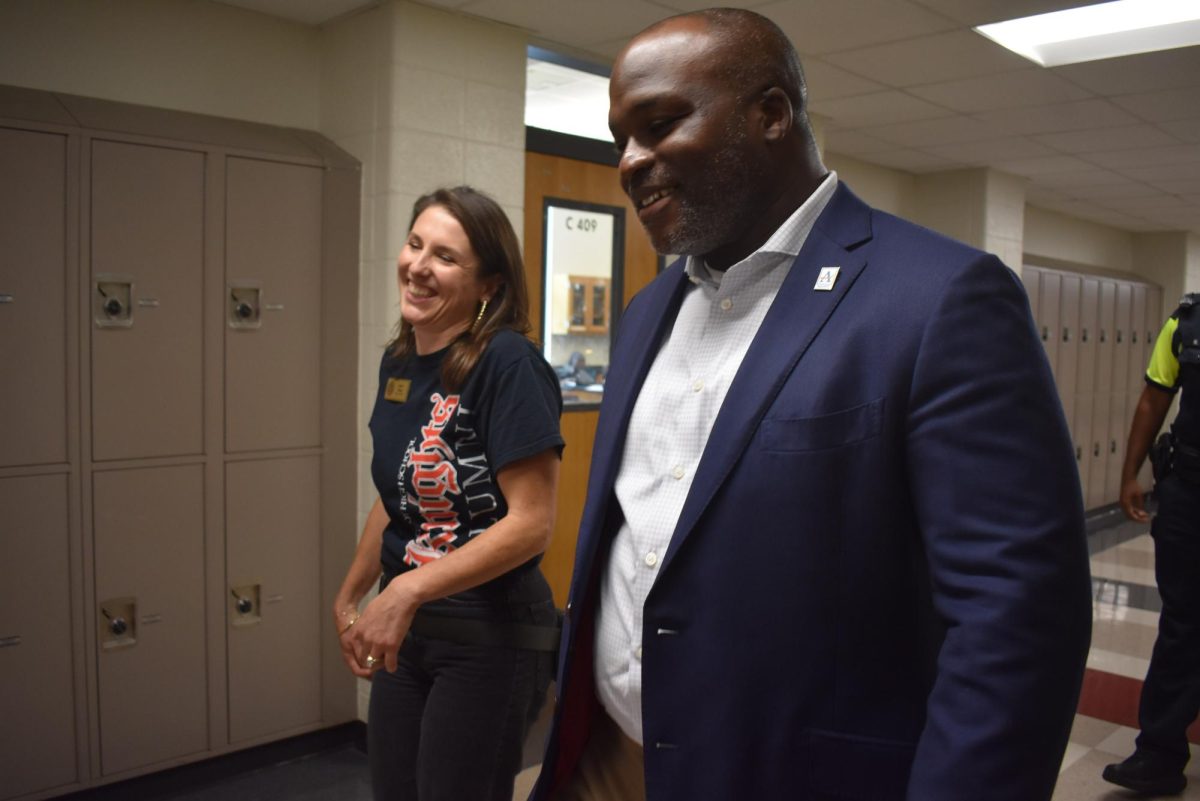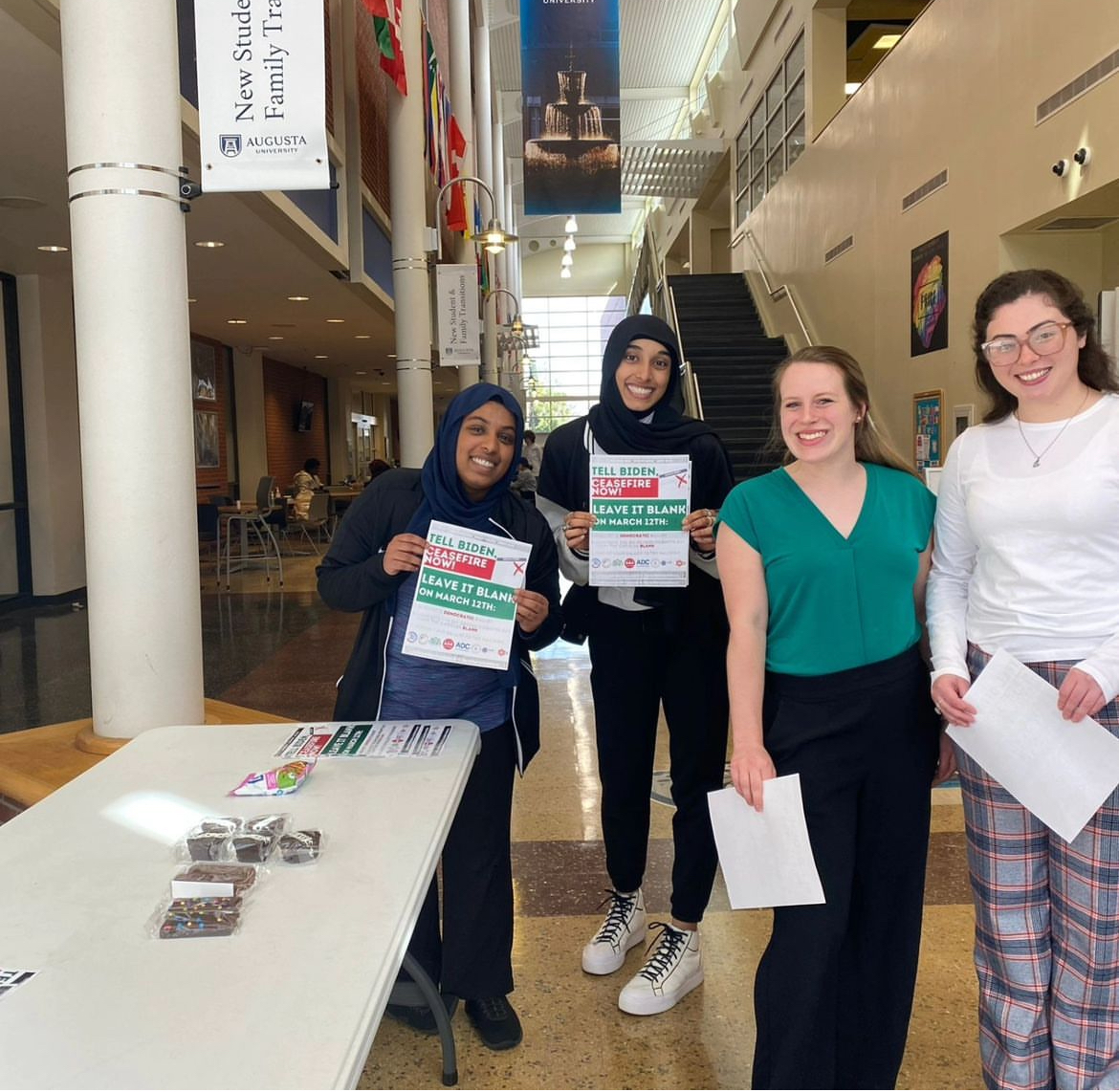In the Georgia General Assembly, several bills have been introduced to try to repress the rights of transgender youth in sports and their right to gender-affirming care.
Georgia Senate Bill 39 (SB 39), sponsored by Republican state Sen. Blake Tillery, aims to amend Chapter 18 of Title 45, Chapter 4 of Title 49, and Chapter 1 of Title 50 of the state code to prevent the state health plan from covering gender-affirming care. The bill refers to gender-affirming care as “radical gender ideology,” despite this type of care improving the mental health of teens who seek it.
SB 39 is still in its early stages; yet, it is causing concern for many advocates, allies and LGBTQIA+ individuals. Erin Cassel, Democratic state Sen. Kim Jackson’s Chief of Staff, expressed her office’s concerns with the proposed bill.
“[Senator Jackson is] very clear that, number one, these attacks on transgender children are harmful to the mental health of our trans children,” Cassel said. “They’re harmful to their educational lives. It’s detracting and distracting from their actual educational work at school. On a social level, it’s incredibly harmful to them, as well. Most of the time our trans youth are a very small and vulnerable minority. These kinds of bills against trans kids are singling out a tiny, vulnerable minority group that just wants to be left alone.”
Cassel said even though it may seem this disdain towards transgender people specifically has come out of the blue, it is not a new fight.
“Twenty years ago, they [legislators] evolved about their thinking with gay and lesbian folks,” Cassel said. “How they thought 20 years ago about Senator Jackson, as a lesbian herself, is so different from how they think about her now. There’s a lot of hope for that evolution and that change that doesn’t detract from the seriousness of this rhetoric that’s happening on a national and a state level … I think that the trends are just louder right now; the negative trends. We saw all of this last year before the Trump administration. Before the election, we saw all of this two years ago in the Senate. Are they louder? Are there more bills? Sure. They’re more nitpicky bills. The trend is hopping on the messaging train of scapegoating.”
Kai Huber, a transgender junior who uses he/him pronouns, believes the new administration will bring a wave of harmful policies.
“I think with the Trump presidency, a whole new era of dangerous anti-trans legislation is being ushered in,” Huber said. “It was bad even before, but that was mostly statewide. Now the harmful legislation is national and directly targeting the vulnerable population of trans kids.”
Grace Krauth, an LGBTQIA+ sophomore, said these pieces of legislation would only alienate an already vulnerable group of people even further.
“A trans student might feel unsafe in their own school, and would most likely constantly worry about how the lack of hormones and care will affect their life in different aspects, including socially and physically,” Krauth said.
Cassel, in response to anti-transgender bills being introduced, has seen an influx of people rising together to fight for what they believe in.
“What we have seen in response to this growing, negative trend is an incredible uprising,” Cassel said. “From our LGBTQ and allies, communities in Georgia, an incredible positive upswell of people coming to stand on the front lines and protecting and speaking out and courage; testifying in committees, calling senators out to the ropes, really being vocal and proud and humanizing themselves so that we start to take away the rhetoric and put real faces to this community. I think it’s a two-fold answer. On one side, yes, we do see a rise of really scary rhetoric and numerous pieces of legislation flying. This is not something that’s a new thing. It’s just becoming more because of the national rhetoric. But on the flip side, that, in turn, means that we’re seeing a huge rise of advocacy more than ever before.”
Cassel believes that during a tense political climate, this is the best time to learn about politics and the way the government works.
“People have an opportunity to really educate themselves right now,” Cassel said. “And so what we hope is that maybe the national rhetoric will help, will force people to look and see what’s happening on a state level and start actually getting involved in state-level stuff because that’s what’s really affecting our kids in schools. It’s not a national ban that’s going to trickle down and affect them later. It’s a state piece of legislation; that will go into effect sooner and affect them.”
Krauth believes that there should be a larger understanding of transgender issues.
“The schools need to be safe spaces for trans youth, and gender-affirming care should be accessible for minors,” Krauth said. “Major surgeries should not be accessible for minors, but they should be allowed to begin the process of hormones steadily so that they can truly feel themselves in their body. Information about the transgender community and youth needs to be more widespread and clear, so more people understand the process of hormonal therapy and why it is important to the trans youth.”
Riley Gaines Act
Another bill targeting transgender youth in Georgia is House Bill 267, or the Riley Gaines Act. This bill aims to ban transgender women from being in female school sports; this includes any athletic scholarships that are specifically designated for women. Additionally, the bill requires separate bathrooms and changing facilities for transgender athletes.
“I think this law is just adding to the widespread discrimination of trans people in all areas – bathrooms, medical care and more,” Huber said. “It’s sending the message that it’s okay to treat trans people as less than human even though we are people with feelings.”
Supporters of the bill argue that it’s an effort to maintain fairness in women’s sports, claiming that transgender women have an advantage over cisgender women. Midtown senior and athlete Julia Williams emphasizes the biological differences between men and women that play a big part in certain sports, such as golf.
“They [men] have wider wingspans,” Williams said. “They’re able to pick up more speed and more traction; they press off the ground harder. It’s just the way their bodies are built. I’m not going to say that all men are better than female golfers; that’s not the truth. I mean, I’ve been beating my dad in golf since I was 8 years old. It’s just the fact of it, especially when you get to higher-level golf, where you’re going to state, or maybe you’re playing in college. Maybe even you’re going to the pros. That matters.”
Critics of the bill argue that the impact it will have is minimal, especially because of the very small number of transgender girls in school sports.
“So much attention has been brought to the trans community, and I think people are forgetting that trans people are less than 10% of the population, and an even smaller percent of that are athletes,” Christopher Wharton, Midtown’s Gender-Sexuality Alliance (GSA) sponsor said.
Andi Woodworth, a transgender Midtown parent who uses she/they pronouns, comments on the origin of having separate men’s and women’s sports teams.
“Women’s sports teams, separate from men’s teams, were initially created after women started playing on men’s teams because the women would win sometimes, and this made the men feel ashamed – so to protect male feelings, separate teams were formed,” Woodworth said.
While this bill has been passed into Georgia law, it is unclear how such policies will be implemented in schools.
“There’s not been any change at Midtown or in APS with how we are expected to treat trans children,” Wharton said. “Georgia hasn’t given any direction, telling schools what they can or can’t do. Our commitment to supporting trans students and calling out anti-trans speech, I think will still stand, as the culture here is, overall, supportive as a school.”
Despite debates around the issue, some argue that the solution is not necessarily exclusion, but could be to allow athletes the opportunity to participate, regardless of their identity.
“It’s a hard conversation, but do I think trans athletes should be completely banned from sports? No,” Williams said. “If they want to play, let them play.”
Krauth argues these laws further marginalize transgender youth, and make it harder for them to navigate their identities.
“These kids are people, too, and shouldn’t be shamed or outcast for figuring out who they are and fighting for these rights,” Krauth said. “They aren’t trying to go into the other sex’s bathroom to spy on them, they are trying to be comfortable in their body inside and out.”
Mental Impacts and Reactions
A U.S. national survey on the mental health of LGBTQIA+ youth by The Trevor Project in 2024, found that 90% of LGBTQIA+ young people said their well-being was negatively impacted due to recent politics.
Krauth believes the passing of these bills can make transgender youth feel more isolated than they might already feel.
“I think it’s going to make a lot of trans youth feel unsafe in their own homes and communities, and honestly will affect their mental health without their proper treatments and support,” Krauth said.
Wharton said the hostility towards transgender people is largely due to lack of education, rather than actual dislike.
“I would say just, sometimes, a lot of people don’t understand it,” Wharton said. “People can’t empathize, so their idea of a trans person is someone playing pretend or dressing up because they haven’t experienced it or know what’s going on in their life. Even LGBTQ people can be transphobic. I try to make the point of imagining how it felt to be told, ‘It’s just a phase’ or to ‘Get counseling,’ or if you had a ‘mental issue,’ it’s the same idea with a trans person.”
In response to these bills, Democrats have begun to speak out and create counters to these pieces of legislation.
“In response to that [Riley Gaines Act], Senator Jackson and I have been working for months on a response bill,” Cassel said. “Our response to that is SB 41. SB 41 is called the ‘Fairness in Girls Sports Act.’ It addresses equal coach pay so that the football coach is not making $10,000 and the soccer girls soccer coach is making $3,000 — equal equipment so that the girl’s soccer team doesn’t have [use] to six balls for a whole season — equal access to the locker room so the girl’s volleyball team doesn’t have to change clothes in their car; equal access to practice times and game schedules.”
SB 41 addresses fairness within girls’ sports without excluding transgender girls.
“Our response is, if you want to talk about fairness in girls’ sports, then let’s talk about what will affect hundreds of thousands of girls in this state,” Cassel said. “Let’s talk about the lack of instituting Title IX in schools across the entire country, and how we can really hold our girls up and make them feel equal, and valued – like they are not second class to a boys’ football team.”
On a local level, many members of the LGBTQIA+ community are expressing their contempt for these bills.
“I think the message that the GOP aims to send with this law and all of their other anti-trans laws is that trans kids do not deserve to exist,” Huber said. “I hate to say it like that, but I do believe that’s what they think. We’re being used as pawns in a political battle, and they have no respect for what is best for us.”
The recent developments of possible repression of trans rights, bring up concerns for the rights of other marginalized communities.
“I am very concerned about what is unfolding in our country and in our state, not just for the trans community, but also for the wider LGBTQIA+ community, the disability community, and larger groups like black, brown, and Indigenous people, and also women and impoverished folks,” Woodworth said.
With the concerns that many members of the LGBTQIA+ community are facing, Huber expresses the need to stay positive and to take care of yourself during times like these.
“To be honest, right now is a rough time and there’s nothing that can really fix that,” Huber said. “Try to prioritize your mental health and don’t feel obligated to stay informed on everything because, at the end of the day, you are just a kid who shouldn’t have to know about any of this. Surround yourself with supportive communities and people who make you feel safe, and try to find joy in the little things. If you want to make a change, post on any social media to raise awareness and email lawmakers to encourage them to oppose harmful bills like this one.”





















